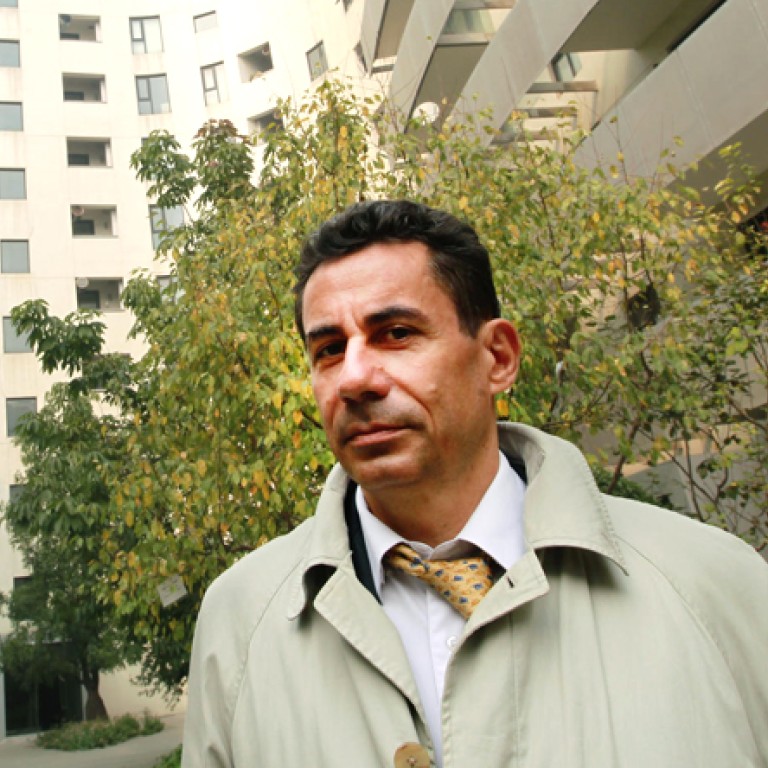
'Taken hostage in China': The Frenchman who can't sell his illegal Beijing penthouse
Frenchman and others unaware they had purchased illegal penthouses
When Didier Boissiere paid seven million yuan (HK$8.89 million) for a rooftop apartment in Beijing, it never occurred to him that buying a property in China would leave him stuck there.
After moving from Paris for work in 2006, he bought a 200-square-metre flat at a high-end residential community in the Chaoyang Park area of the city.
Seven years on, Boissiere is planning to move to Mongolia, but has found himself "somewhat taken hostage in China". He can't sell his property because he can't get an ownership certificate. He can't get the certificate because, though he did not know it at the time, he bought an illegal apartment, and the developer won't buy it back.

According to mainland law, property developers should provide ownership certificates to buyers no more than a year after a transaction, but Boissiere has yet to receive one.
In the same boat are about 30 other foreign owners of flats in the Victoria Gardens development, which is near the eastern section of the capital's Third Ring Road.
"We wrote a joint letter to the mayor, but were told that we just have to wait for the developer to comply, which the latter refuses to do," Boissiere said.
Beijing authorities said the developer constructed 19 illegal penthouses, one of which Boissiere owns, and has refused to demolish them, meaning the property company has been unable to apply for ownership certificates from the housing commission.
Boissiere has asked the developer to compensate him for the delay in issuing the certificate or buy back his property at the market price for legal apartments, which have at least doubled since he bought his. He has not received a reply.
Yin Xuefeng , Boissiere's lawyer, called the development one of the many "dead projects" in Beijing, over which the government and the developer have reached an impasse and walked away from the negotiating table.
"There is another dead project near Victoria Gardens, and one in Haidian district, just to mention a few," Yin said.
Staff at the Beijing Municipal Commission of Housing and Urban-Rural Development, which is responsible for issuing property ownership certificates, and the Beijing Municipal Commission of Urban Planning, which supervises construction, said they had done their part in attempting to resolve the problem.
The urban planning commission said that after the developer failed to tear down the penthouses, as was required before October 19, 2010, it asked Chaoyang district authorities to take action to enforce the removal in February 2011.
Not one penthouse has been demolished since then, but the commission said that "the Chaoyang district government is now actively co-ordinating with related departments to enhance the task".
Boissiere said: "An official at the planning commission's Chaoyang branch even told me, 'The only thing you can do is contact the media to put pressure on the government to move on this', and he sounded truly sincere in making this suggestion."
According to another owner, a Chinese national who has led the battle against the developer on behalf of the residents, the owners sued the Chaoyang district bureau, which is responsible for forcibly removing illegal buildings, for not doing their job.
But the court decided the bureau was not guilty on grounds that it had not been intentionally avoiding removing the structures, but rather could not do it because many of the penthouse owners were not at home.
The sales office of the developer, Beijing Zhengxujingdian Real Estate Development, a company founded by a Chinese Australian, was closed and has not replied to Boissiere's lawyer regarding the claim for compensation.
Michael Huang, a Singaporean owner, said: "All that can be done is done, and I feel helpless."
Like a number of the other foreign owners, he planned to sell the property when leaving China, though he was not planning to leave as soon as Boissiere.
Boissiere is now planning to bring the case to court following similar unsuccessful attempts by other owners.
His lawyer Yin said: "The difference is that now it's foreigners suing, and I hope authorities will attach more importance to it this time."

